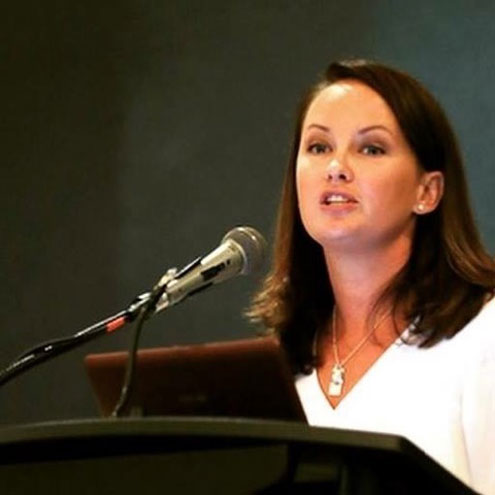Free Forum In Honor of January National Human Trafficking Awareness Month
Selling, trafficking, torturing and terrorizing human beings for money is what human traffickers do every day around the world.
California is home to three of the Federal Bureau of Investigation’s 13 highest child sex trafficking areas in the nation. They are San Francisco, Los Angeles and San Diego. The State also has the highest reported cases of human trafficking in the nation—almost double that of any other state.
Locally, a Needs Assessment conducted by three Central Coast Child Welfare Agencies (Santa Cruz, San Benito and Monterey) identified 91 children and minor teens who were sex trafficked from 2015-to-2016, and found that another 600 more were at risk. Based on interviews with survivors, investigators found that traffickers have a common circuit.
“They move their victims from city-to-city to avoid law enforcement, and to make it more challenging for a victim to find a safe or easy way to leave,” said Carmel Jud, founder and executive director of Rising International, an organization that provides a platform of training and coaching to economically-vulnerable individuals, primarily women surviving extreme poverty, gender-based violence, homelessness and human trafficking.
While victims may be trafficked in major cities, they are recruited everywhere and areas with high levels of drug addiction, poverty and homelessness are even more at risk, according to Catie Hart, a human trafficking survivor who will be the keynote speaker at the #End Human Trafficking forum set for January 18 at Twin Lakes Church, 2701Cabrillo College Drive, at 11:30 a.m. The forum is free and open to the public. January is National Human Trafficking Awareness month.
“But Pimps target areas where people are vulnerable, which can happen from bullying, divorce, etc.,” Hart added. “Vulnerability is a part of the human existence, and traffickers exploit that.”
Co-sponsored by the Santa Cruz Branch of American Association of University Women (AAUW) and Soroptimist International of Capitola-by-the-Sea (SI-Capitola), it will also feature experts from the Santa Cruz County District Attorney’s office, and other organizations dedicated to ending human trafficking.
Supporters of the event from both Santa Cruz and Monterey Counties include:
- Coalition to End Human Trafficking in Santa Cruz and Monterey Counties
- Rising International
- Dress a Girl Around the World
- Santa Cruz County Office of Education
- Santa Cruz County Office of the District Attorney
- Rape Crisis Center of Monterey County
“The forum is designed to educate parents, grandparents, PTA members and others who work with teens,” said Kit Hein, AAUW president. “It will be a reality-based program that will give everyone tools to recognize how traffickers target and groom their victims.”
Hart was trafficked for seven years by a man she was conned to believe was her boyfriend when she was just 18 and had recently moved from Colorado to San Francisco. But his plan, from the beginning, was to abuse and exploit her. It began when he accused her of using him and since he had been taking care of her, he said it was time she repaid him. He said if she loved him, she would be happy to get a job at a strip club in the Bay area.
From there, her mistreatment and trafficking escalated. He began torturing her by depriving her of sleep and threatening to kill her if she tried to escape. She feared for her life every day and would hide out and sleep in a closet in an attempt to get her brain back.
Eventually, a 50-year-old woman who was nanny to the trafficker’s three children from a marriage in which he also trafficked his then wife, recognized the symptoms and helped her escape.
Since then, she has spent many years in therapy, has suffered from Post Traumatic Stress Disorder (PTSD) and other side effects.
In spite of that, she went back to school, graduated from the University of California, Berkeley, and has since dedicated her life to helping trafficked survivors.
Over the years she has been a consultant to 40 child-welfare agencies across the state, developed an Online Trauma Bonding Course for University of California, Davis and an anti-trafficking Curriculum for the California Department of Social Services. In addition, she is currently working with two-dozen foster youth who have either been identified or are high-risk teens. She is also training survivors to be software professionals at AnnieCannons, a non-profit designed to train trafficking victims in software development.
For several years, Hart worked with the San Francisco Police Department’s Special Victims Unit where she was assigned to monitor phone calls between incarcerated traffickers and the victims they continued to control, even from jail.
In the conversations, the traffickers all sounded alike and were consistent in how they manipulated and tricked their victims to keep them under control, which is common in sex trafficking and is a type of psychological brainwashing.
She believes that law enforcement can and must develop a psychological profile of traffickers—as they have done with serial killers—if there is ever going to be any success in ending the exploitation.
At the forum, she hopes to communicate to parents and teachers the importance of letting their children know it is safe to talk about what may be happening to them, and to stop blaming victims when they begin their recovery and to understand how manipulation and trickery work to destroy the victim’s ability to resist and escape their captors.
“I think I would like to help people see this as a human issue and get rid of the stigma of it for the victims,” she said.



